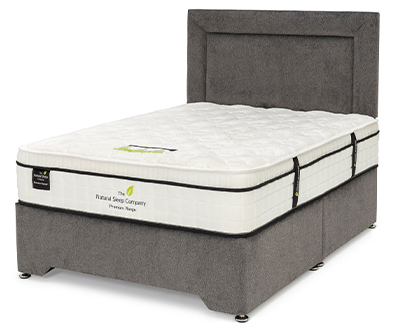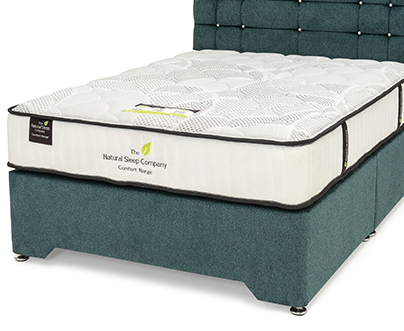As the world begins to ease COVID-19 restrictions and people head back to working life post-lockdown, good quality sleep is more important than ever. With schedules changing and stress levels increasing, many of us have found ourselves flung out of our usual routines (or into bad ones) over the past year and, once lost, it can be difficult to reestablish a good sleeping routine.

A good night’s sleep is just as important as regular exercise and a healthy diet, and at The Natural Sleep Company, we want to do everything possible to help you achieve the best quality sleep. That’s why we have put together these 5 steps toward rebuilding your sleep schedule as we come out of lockdown.
-
Monitor your light exposure
Your body’s internal time-keeping clock, known as the circadian rhythm, is largely responsible for managing your brain, body, and hormones, helping you stay awake and telling your body when it’s time to sleep. The exposure of your body to light throughout the day and night has a huge effect on your circadian rhythm – natural sunlight or bright light during the day has been shown to improve daytime energy, as well as nighttime sleep quality and duration.
Exposure to light during the day is beneficial, but nighttime light exposure has the opposite effect. For this reason, it is important to monitor your light intake as part of your daytime and nighttime routines; increasing bright light exposure during the day and reducing blue light exposure in the evening will help your body to prepare itself for sleep and maintain a deeper, more restorative sleep throughout the night.
-
Decrease your caffeine consumption
In moderation, caffeine has numerous benefits to the mind and body – a single dose can enhance focus, energy, and sports performance. However, when consumed late in the day, caffeine stimulates the nervous system in a disruptive way and may stop your body from naturally relaxing.
Studies have shown that consuming caffeine within 6 hours of your bedtime significantly worsens sleep quality, as caffeine can remain active in the bloodstream for 6–8 hours. Therefore, drinking large amounts of coffee after 3–4 p.m. is not recommended for a good night’s sleep, especially if you’re sensitive to caffeine or are already having trouble sleeping.

-
Reduce daytime naps
While the occasional short nap may feel essential to your productivity, according to studies about daytime sleeping, naps that are too long, too short, or are not consistent from day-to-day have been proven to negatively affect nighttime sleep. Sleeping too deeply in the daytime can confuse your internal clock, meaning that you may struggle to fall asleep (or stay asleep) when it’s finally time for bed.
-
Keep a consistent schedule
Having a “bedtime” might sound like something exclusive to children, but in fact keeping a consistent sleep schedule is important for people of all ages. By setting and sticking to a bed time, you’re helping your body to schedule its important processes, such as healing, chemical regulation and metabolism. All of these things are monitored by your circadian rhythm, which depends on a consistent schedule to function properly. In addition to internal processes, a more consistent schedule can also help to improve your mental health by promoting organisation and work/life compartmentalisation in the evenings.
-
Optimise your bedroom environment
It is also noted that a healthy bedroom environment, including temperature, noise, light, and furniture, is essential to a good night’s sleep. Unlike the previous few steps we’ve suggested, the ideal sleeping environment is completely different for each person, and it may take a few nights of trial and error to get it just right.
To optimise your bedroom environment, try to minimise external noise, natural light, and artificial lights from devices like alarm clocks. Make sure your bedroom is a quiet, relaxing, clean, and enjoyable place. In addition, make sure that your bed and mattress are right for you – no matter what your environment or routine is like, if your mattress is uncomfortable, you will never get your best sleep. A high-quality mattress and a bed that suits all your needs are both vital to increasing the quality and quantity of your sleep.
Sleep plays a vital role in our overall health, but it’s something we often forget about when our waking lives are busy and stressful. As COVID-related restrictions begin to ease across the globe, it is especially important for us to solidify our sleeping habits now so that we’re prepared when life begins to open back up. If you are able to take these 5 steps toward securing your sleeping routine, you will find that you’re happier, healthier, and better prepared to face each day.





